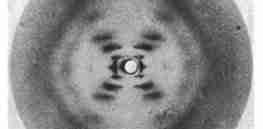Ancestry & Evolution
Tracking down the evolution of an essential human skill: self-control
Human self-control evolved in our early ancestors, becoming particularly evident around 500,000 years ago when they developed the skills to ...

Viewpoint: Did this philosopher disprove evolutionary psychology? ‘No—certainly not’
Subrena Smith, an assistant professor of philosophy at The University of New Hampshire, has made a bold claim in the ...
Humans may have driven weeds to evolve to resemble crop plants—And they even became edible
Nikolai Vavilov’s story has stuck with Longjiang Fan ever since he learned about the Soviet plant biologist during his undergraduate ...
Genetic analysis unravels East Asia’s history, highlighting migration of early farmers
Ancient genomics is starting to unravel the history of East Asia. The first large-scale studies of ancient human genomes from ...
Challenging evolutionary psychology: Philosopher attacks the field’s underlying scientific foundation
It’s not often that a paper attempts to take down an entire field. Yet, this past January, that’s precisely what ...
‘AI in archeology’ pinpointing new excavation sites at an ‘unimaginable’ pace
Archaeologists have uncovered scores of long-abandoned settlements along coastal Madagascar that reveal environmental connections to modern-day communities. They have detected ...
Feeling a bit stir crazy during the pandemic lockdown? Blame it on human evolution
Humans are intensely social creatures. We all need company and social contact. But for many of us, being at home ...
‘From pipsqueaks to titans’: The complicated evolution of dinosaurs
For tens of millions of years, even as other dinosaur species grew to huge sizes, 40-foot carnivores weren't around. How, ...
We’re still searching for a key piece of our evolutionary tree—our most recent ancestor
Humans’ most recent ancestor, the species that predated our kind, remains shrouded in mystery. Anthropologists still don’t know what species ...

Podcast: Tracing humanity’s roots: uncovering history and genetic diversity in Africa
We explore the genetic diversity in the birthplace of humanity and discover the cultural and historical stories written in the ...
Invading armies not to blame for fall of ancient Andean cultures, genetic analysis shows
An international team has conducted what it says is the first in-depth, wide-scale study of the genomic history of ancient ...
Why were these 1,000-year-old skulls shaped like ‘sci-fi aliens’?
Tight wrapping in childhood produced deliberately deformed skulls ...
Viewpoint: Darwin’s ‘Descent of Man’ is both deeply disturbing and more relevant than ever
Charles Darwin’s Descent of Man is full of unexpected delights — such as the trio of hard drinking, chain-smoking koalas ...
Skeletons of Africans enslaved in Mexico reveal extreme hardships of the Atlantic slave trade
In a study published [April 30] in the journal Current Biology, scientists tell the stories of three 16th-century enslaved Africans ...
Dinosaur DNA discovered?
The tiny fossil is unassuming, as dinosaur remains go. ... But it may contain something never before seen from the ...

A different approach to finding alien life: What if ET breathes hydrogen instead of oxygen?
The first time we find evidence of life on a planet orbiting another star (an exoplanet), it is probably going ...
‘Crazy beast’ fossil shows how weird evolution can get
Researchers have uncovered the fossil of an early mammal named the "crazy beast" that lived 66 million years ago on ...
Coronavirus evolutionary tree can illuminate pandemic’s ‘past, present and possible future’
For anyone who knows how to look, the past, present, and possible futures of the new coronavirus can be found ...
7 things we learned about human evolution in the past decade, including that we are older than we thought
To mark the 10th anniversary of the Smithsonian’s “David H. Koch Hall of Human Origins,” here are some of the ...
‘Genetic scrambling’ over millions of years makes it difficult to understand Earth’s earliest life
Biologists have long hoped to understand the nature of the earliest living organisms on Earth. If they could, they might ...
‘Overly simplistic’: Women may have been more than just ‘gatherers’ in ancient times, studies suggest
Sexual divisions of labor characterized ancient societies, but were not as rigidly enforced as has often been assumed, [two] new ...
Seeking the ‘secret ingredient’ that led to life on Earth. Researchers may have discovered it
Think of the RNA world as a pot of gazpacho. We prepare ingredients and then stir them into a single ...

Podcast: Twisted history—The true story of how the DNA double helix was discovered
There's more to the story of the double helix than Watson and Crick. We unwind history to uncover some of ...
‘Not alone’: 3 different human ancestors may have lived together in South Africa 2 million years ago
An international team, including Arizona State University researcher Gary Schwartz, have unearthed the earliest known skull of Homo erectus, the ...
Puzzling over the mysteries of human pregnancy: Why is labor so long and dangerous?
From an evolutionary perspective, human pregnancy is quite strange, says University at Buffalo biologist Vincent Lynch. "For example, we don't ...
Part of the forensic ‘jigsaw puzzle’: Tooth shape offers insights into a deceased person’s genetic makeup
A study found that some characteristics of dental remains — such as crown groove patterns, cusp size, number of roots, ...
Why ‘beauty’ is an evolutionary conundrum that even Darwin couldn’t solve
The genius of evolution is its brutal pragmatism; do whatever is needed to pass your genes onto the next generation ...

Video: Exploring the natural events that created the coronavirus pandemic
The coronavirus pandemic has changed our day-to-day life as we know it – but how did the novel coronavirus (SARS-CoV-2) ...

